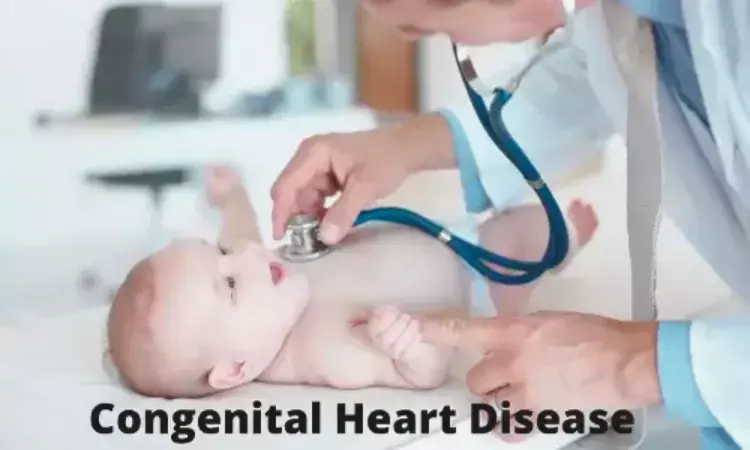- Home
- Medical news & Guidelines
- Anesthesiology
- Cardiology and CTVS
- Critical Care
- Dentistry
- Dermatology
- Diabetes and Endocrinology
- ENT
- Gastroenterology
- Medicine
- Nephrology
- Neurology
- Obstretics-Gynaecology
- Oncology
- Ophthalmology
- Orthopaedics
- Pediatrics-Neonatology
- Psychiatry
- Pulmonology
- Radiology
- Surgery
- Urology
- Laboratory Medicine
- Diet
- Nursing
- Paramedical
- Physiotherapy
- Health news
- Fact Check
- Bone Health Fact Check
- Brain Health Fact Check
- Cancer Related Fact Check
- Child Care Fact Check
- Dental and oral health fact check
- Diabetes and metabolic health fact check
- Diet and Nutrition Fact Check
- Eye and ENT Care Fact Check
- Fitness fact check
- Gut health fact check
- Heart health fact check
- Kidney health fact check
- Medical education fact check
- Men's health fact check
- Respiratory fact check
- Skin and hair care fact check
- Vaccine and Immunization fact check
- Women's health fact check
- AYUSH
- State News
- Andaman and Nicobar Islands
- Andhra Pradesh
- Arunachal Pradesh
- Assam
- Bihar
- Chandigarh
- Chattisgarh
- Dadra and Nagar Haveli
- Daman and Diu
- Delhi
- Goa
- Gujarat
- Haryana
- Himachal Pradesh
- Jammu & Kashmir
- Jharkhand
- Karnataka
- Kerala
- Ladakh
- Lakshadweep
- Madhya Pradesh
- Maharashtra
- Manipur
- Meghalaya
- Mizoram
- Nagaland
- Odisha
- Puducherry
- Punjab
- Rajasthan
- Sikkim
- Tamil Nadu
- Telangana
- Tripura
- Uttar Pradesh
- Uttrakhand
- West Bengal
- Medical Education
- Industry
Maternal progesterone therapy may benefit neurodevelopment among fetuses with CHD, reveals JAMA study

USA: In a groundbreaking development, a randomized clinical trial has unveiled promising results regarding progesterone use to enhance neurodevelopment in fetuses diagnosed with congenital heart defects (CHD). The study, published in JAMA Network Open, sheds light on a potential breakthrough in prenatal care, offering new hope for families facing the challenges of CHD.
In the randomized clinical trial (RCT) of maternal progesterone therapy, the overall effect was not statistically different from 0. Subgroup analyses indicate heterogeneity of the response to progesterone among congenital heart defect diagnosis and fetal sex.
Congenital heart defects, affecting approximately 1% of newborns globally, pose significant medical challenges, often requiring complex interventions and lifelong management. Beyond the cardiac implications, these defects have been associated with neurodevelopmental delays and disorders, raising concerns about cognitive and behavioral outcomes in affected children.
Neurodevelopmental outcomes for children with CHD have improved minimally over the past 20 years. J. William Gaynor, University of Pennsylvania, Philadelphia, and colleagues aimed to assess the tolerability and feasibility of maternal progesterone therapy and the magnitude of the effect on neurodevelopment for fetuses with CHD.
For this purpose, the researchers conducted a double-blinded individually randomized parallel-group clinical trial of vaginal natural progesterone therapy vs placebo in participants carrying fetuses with CHD between 2014 and 2021 at a quaternary care children’s hospital.
Participants included maternal-fetal dyads with CHD identification before the fetus' 28 weeks of gestational age and were likely to require surgery with cardiopulmonary bypass in the neonatal period. Exclusion criteria included an extracardiac anomaly or major genetic than 22q11 deletion syndrome and known contraindication to progesterone.
Participants were block-randomized in a 1:1 ratio to vaginal progesterone or placebo by diagnosis: transposition of the great arteries (TGA), hypoplastic left heart syndrome (HLHS), and other CHD diagnoses. Twice daily treatment was administered between 28 and up to 39 weeks gestational age.
The primary outcome was the motor score of the Bayley Scales of Infant and Toddler Development-III; secondary outcomes were language and cognitive scales. Exploratory prespecified subgroups included fetal sex, cardiac diagnosis, maternal-fetal environment, and genetic profile.
The study led to the following findings:
- The 102 enrolled fetuses primarily had HLHS (50.9%) and TGA (37.3%), were more frequently male (65.7%), and without genetic anomalies (59.8%).
- The mean motor score differed by 2.5 units for progesterone compared with placebo, a value not statistically different from 0.
- Exploratory subgroup analyses suggested treatment heterogeneity for the motor score for cardiac diagnosis and fetal sex but not genetic profile or maternal-fetal environment.
"We recommend continued study into possible benefits of progesterone for a targeted subset of patients with congenital heart defects," the researchers concluded.
Reference:
Gaynor JW, Moldenhauer JS, Zullo EE, et al. Progesterone for Neurodevelopment in Fetuses With Congenital Heart Defects: A Randomized Clinical Trial. JAMA Netw Open. 2024;7(5):e2412291. doi:10.1001/jamanetworkopen.2024.12291
Dr Kamal Kant Kohli-MBBS, DTCD- a chest specialist with more than 30 years of practice and a flair for writing clinical articles, Dr Kamal Kant Kohli joined Medical Dialogues as a Chief Editor of Medical News. Besides writing articles, as an editor, he proofreads and verifies all the medical content published on Medical Dialogues including those coming from journals, studies,medical conferences,guidelines etc. Email: drkohli@medicaldialogues.in. Contact no. 011-43720751


